
Most of us are now aware of which foods we should and shouldn’t be consuming on a regular basis, but it’s how much we eat, as well as what we eat, that can have just as big an impact on our long-term health.
It’s been drummed into all of us that we should be consuming at least five portions of fruit and veg each day, that we should aim for two or more portions of fish per week and avoid overeating – but these guidelines are only truly useful if we all understand what a ‘portion’ actually is. This handy guide should make things a little a clearer.
FRUIT & VEG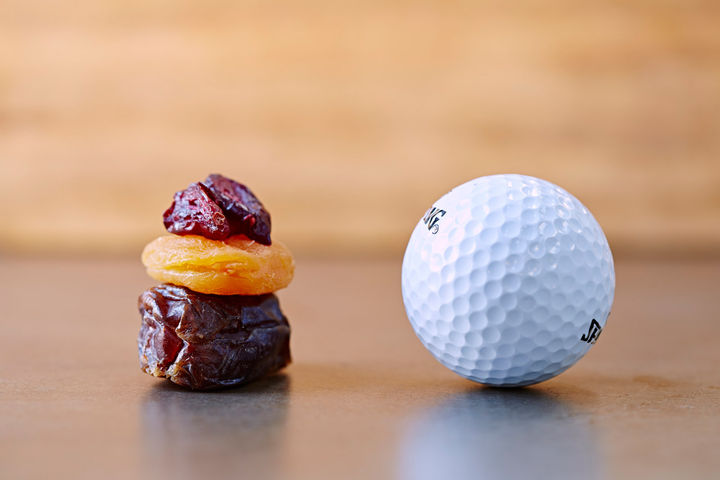
In general, a portion of fresh fruit or veg is roughly 80g and we should aim for a minimum of five portions each day. Many fruits naturally exist in single-portion sizes, which means working out their contribution to our 5-a-day is a breeze – but not all of them! To get the biggest range of vitamins and minerals into your diet, pick as many different colours of fruit and veg as possible.
These are the rough portion sizes necessary to get one of your 5-a-day:
Vegetables = 1 cricket ball
Salad = 1 medium cereal bowl
Medium fruits (apples, bananas, pears) = 1 fruit
Small fruits (plums, satsumas, kiwis ) = 2 fruits
Berries = 1 tennis ball
Fruit juice can count as one of your 5-a-day, but is also very high in sugar. So limit your servings to around 150ml, and try diluting your juice with water to lower the sugar content further. Or why not add some sparkling water to make a delicious fruit spritz?
Dried fruits are a great source of fibre, but are lower in vitamins that their fresh counterparts. The sugar here is also much more concentrated than it is in fresh fruit.
Dried fruit = 1 golf ball
DAIRY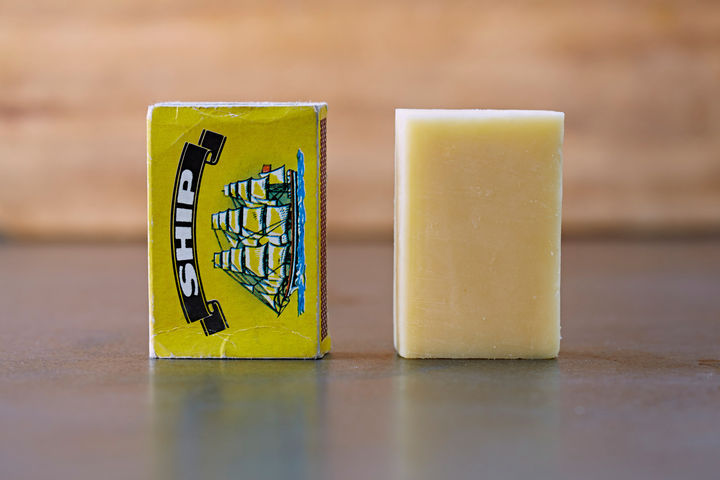
Dairy is a highly nutritious food group, providing protein, calcium, iodine, vitamin A and riboflavin.
Cheese can be a fantastic, but many varieties can be high in saturated fat (the kind we should be limiting our consumption of) and sometimes salt, too. If you find it difficult to stick to the recommended portion of cheese, try to opt for lower-fat versions, such as cottage cheese or ricotta.
Milk = 200ml or a small glass
Cheese = a standard matchbox
Yoghurt = 1 small pot
MEAT & FISH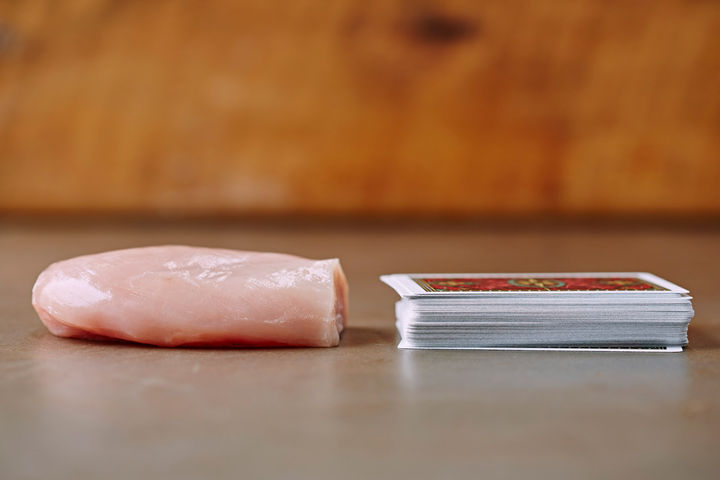
While meat can definitely play a part in a healthy diet, the majority of meat-eaters often consume too much. Cutting down our meat intake can be good for both our own health as well as the health of our planet. Alongside having a few meat-free days each week, make sure you’re not overdoing it with your portion sizes. And remember to opt for higher-welfare meat whenever you can.
Meat or poultry = 1 deck of playing cards
Fish is rich in protein, numerous vitamins and minerals and is generally pretty low in fat. We should be aiming to consume two portions each week, at least one of which should be an oily fish fish (think mackerel, salmon and similar). These oily fish are a great source of omega 3 fatty acids, which help keep our hearts healthy. Always try to choose fish that’s been produced sustainably.
Fish = 1 cheque book
NUTS & PULSES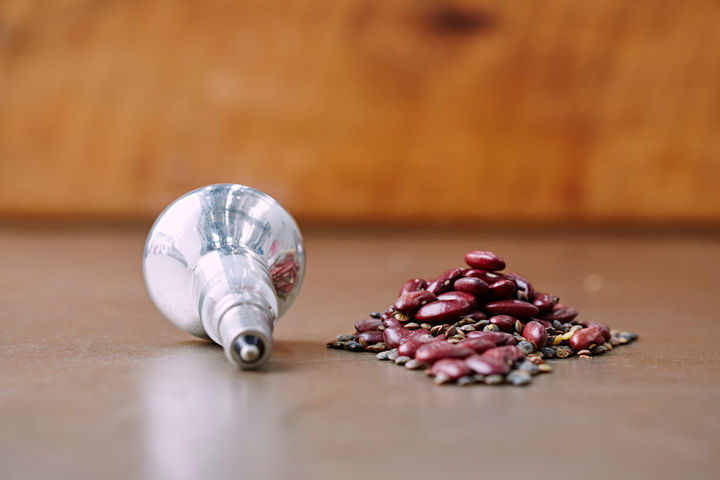
Most nuts are a fantastic source of veggie-friendly protein and heart-healthy fats, plus a great range of different vitamins and minerals. However, due to their high fat content, it’s best to keep an eye on how many you’re eating!
Whole nuts = 1 golf ball
Nut butters = 1 ping pong ball
Pulses, including beans and lentils are another great veggie protein source. If you’re trying to cut down your meat intake, these are a great switch as they’re much lower in fat and also really high in fibre.
Beans and lentils = 1 light bulb
CARBOHYDRATES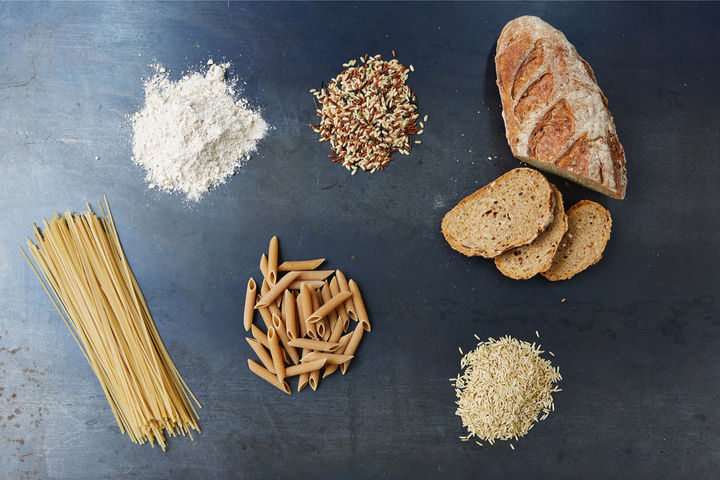
Starchy, wholegrain carbohydrates should make up around a third of our diets as they provide us with the slow-release energy we need to keep us going through the day. It’s really easy to overdo it on the carb front, though, so make sure you watch your portions (who isn’t guilty of wolfing down a huge bowl of delicious pasta every now and then?!)
Pasta, rice, couscous = 1 tennis ball
Potatoes = 1 computer mouse
70g bread = 2 slices or 1 large roll
60g noodles = 1 dried noodle nest
FATS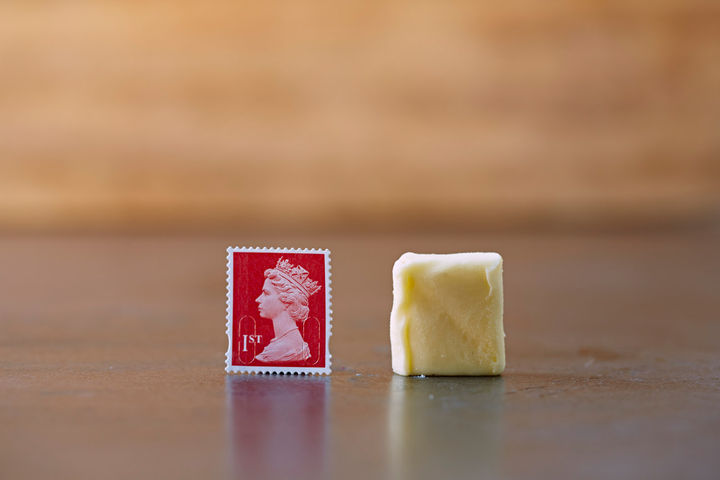
Heart-healthy monounsaturated fats, such as olive oil and rapeseed oil, are a great alternative to saturated fats (think butter and lard) for cooking, and for whipping up fantastic salad dressings. However, do bear in mind that while they are good for us, these oils are still fats and therefore provide the same high amount of energy. Saturated fats are fine as long as we see them as a treat and use them in moderation.
Olive oil = 1 tablespoon
Salad dressing = 1 shot glass
Butter = 1 postage stamp
By avoiding “portion distortion” and being conscious of how much we’re eating as well as what we are eating, we’ll be better equipped to make healthier food decisions. If you’re used to eating larger portions of meat, fish or carbohydrates at meal times and feel like your plate is looking a little emptier than usual, up the goodness and add an extra portion of tasty veg to bulk out your meal.



























